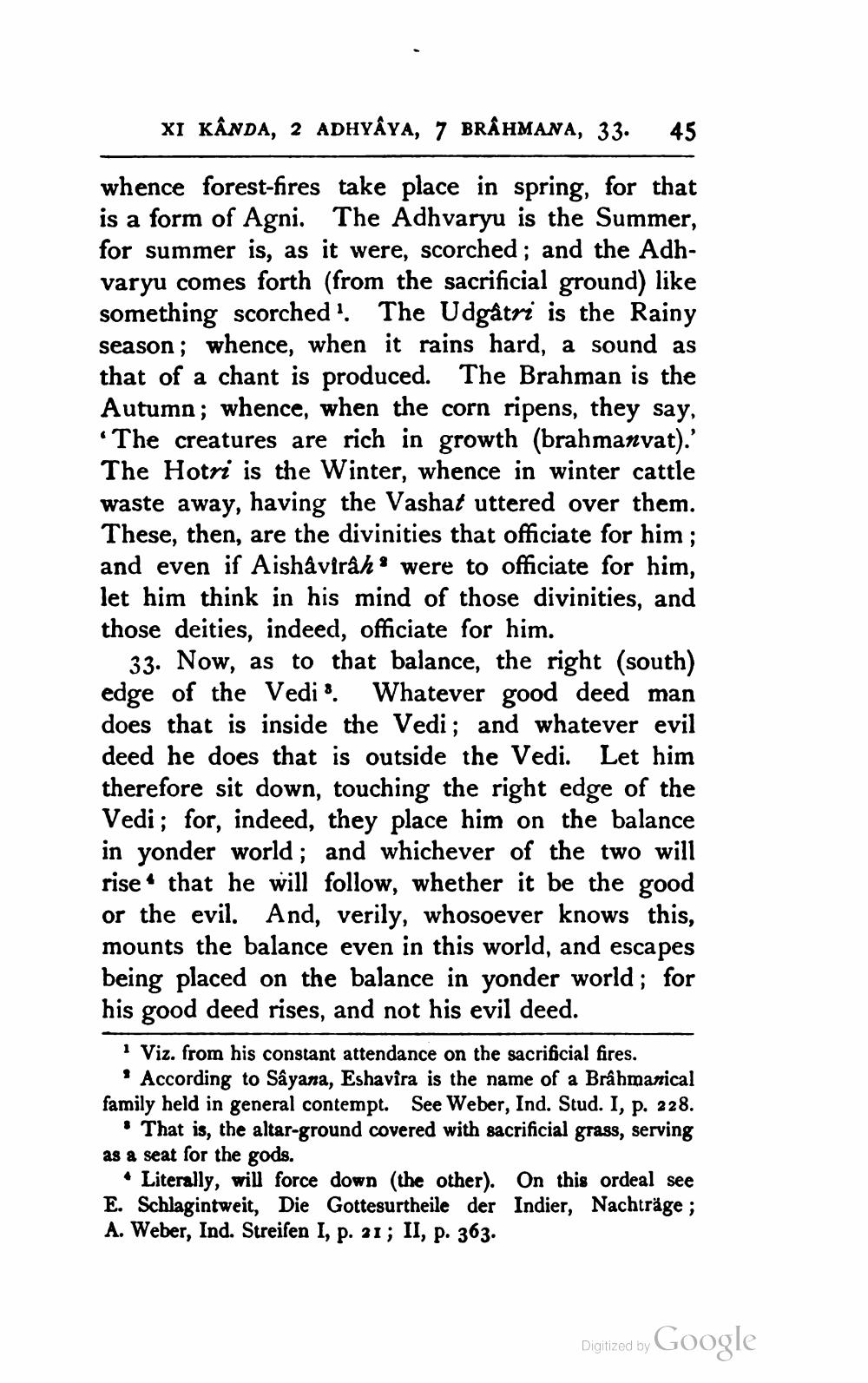________________
XI KÂNDA, 2 ADHYÂYA, 7 BRÂHMANA, 33.
45
whence forest-fires take place in spring, for that is a form of Agni. The Adhvaryu is the Summer, for summer is, as it were, scorched; and the Adhvaryu comes forth (from the sacrificial ground) like something scorched! The Udgâtri is the Rainy season; whence, when it rains hard, a sound as that of a chant is produced. The Brahman is the Autumn; whence, when the corn ripens, they say, • The creatures are rich in growth (brahmanvat).'
The Hotri is the Winter, whence in winter cattle waste away, having the Vashat uttered over them. These, then, are the divinities that officiate for him ; and even if Aishåvirâh' were to officiate for him, let him think in his mind of those divinities, and those deities, indeed, officiate for him.
33. Now, as to that balance, the right (south) edge of the Vedi 8. Whatever good deed man does that is inside the Vedi; and whatever evil deed he does that is outside the Vedi. Let him therefore sit down, touching the right edge of the Vedi; for, indeed, they place him on the balance in yonder world; and whichever of the two will rise that he will follow, whether it be the good or the evil. And, verily, whosoever knows this, mounts the balance even in this world, and escapes being placed on the balance in yonder world; for his good deed rises, and not his evil deed. 1 Viz. from his constant attendance on the sacrificial fires.
According to Sâyana, Eshavira is the name of a Brahmanical family held in general contempt. See Weber, Ind. Stud. I, p. 228.
• That is, the altar-ground covered with sacrificial grass, serving as a seat for the gods.
• Literally, will force down (the other). On this ordeal see E. Schlagintweit, Die Gottesurtheile der Indier, Nachträge ; A. Weber, Ind. Streifen I, p. 21; II, p. 363.
Digitized by Google




